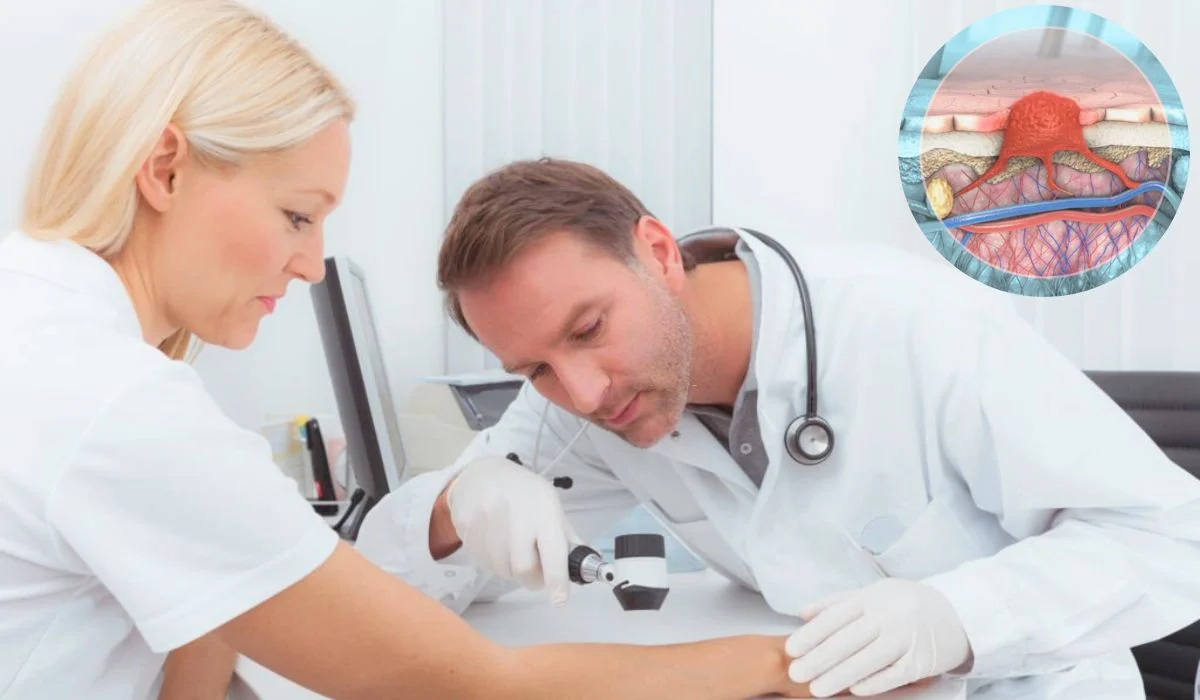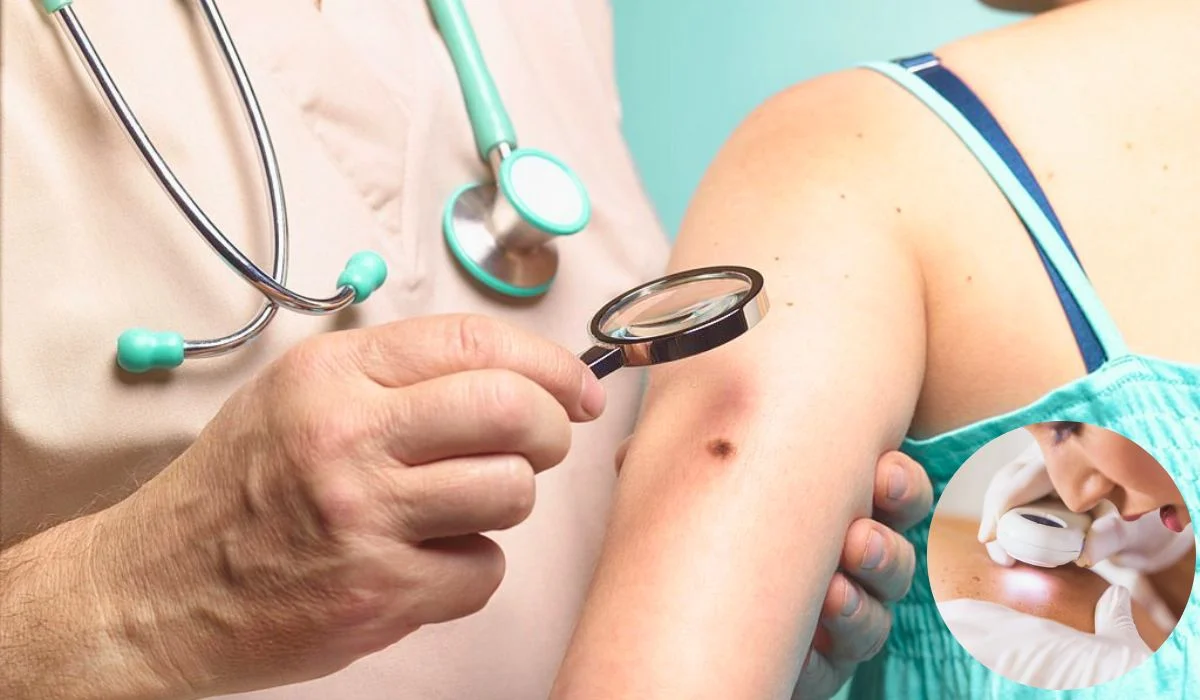Cancer is one of the most life-threatening yet common ailments. Every year over 800,000 people are a victim of this disease according to the Cancer Registry.
If the sources are to be believed Skin cancer is regarded as one of the most prominent ones affecting 1 in every 5 Americans.
More startling data comes to light as it is believed over 9500 people are diagnosed with skin cancer in a single day. This blog will discuss the symptoms, causes, and methods of prevention for this fatal ailment.
Types Of Skin Cancer
1. Basal Cell Carcinoma
Basal cell carcinoma manifests as a translucent lump on the skin, although it can also present in different forms.

2. Melanoma
Prolonged exposure to UV lights and rays can cause this form of Cancer. Scientists are yet to find the exact cause.
3. Nonmelanoma Skin Cancer
Several types of cancer that occur in the skin are classified as nonmelanoma skin cancer, excluding melanoma.
4. Squamous Cell Carcinoma Of the skin
Squamous cell carcinoma is a common type of skin cancer that originates in the squamous cells found in the skin’s middle and outer layers.
Symptoms Of Skin Cancer
Skin cancer presents various warning signs that should be taken seriously. These symptoms include:
- The appearance of a new mole or noticeable changes in an existing mole, such as changes in size, shape, color, or the presence of bleeding.
- The emergence of rough, scaly lesions that may be itchy, bleed, or form crusts.
- Sores that frequently crust, have a central indentation, or tend to bleed.
- Persistent wounds or sores that do not heal or that heal and then reappear.
- The presence of flat patches or bumps on the skin is characterized by a pink, red, or brown color.
- The development of a pearly or waxy bump on the face, ears, or neck.
- Skin areas that resemble scars without a known cause.
If you notice any of these warning signs or have concerns about your skin, it is crucial to seek medical attention promptly.
Causes Of Skin Cancer
1. Living In Sunny Or High-Altitude Climates
People residing in sun-drenched and warm climates have greater sun exposure compared to those in colder areas.
2. Radiation Exposure
Individuals who underwent radiation therapy for skin conditions like eczema or acne may face a higher risk of skin cancer, specifically basal cell carcinoma.
3. A Weakened Immune System
HIV/AIDS patients or individuals taking immunosuppressant medications after organ transplants have an increased susceptibility to skin cancer.
4. A Family History Of Skin Cancer
a family history of skin cancer, particularly among parents or siblings, has a higher likelihood of developing the disease.
5. Previous History Of Sunburns
6. Excessive Sun Exposure
This includes exposure to tanning lamps and beds, which can also heighten the risk.
7. Having Fair Skin
Although anyone can develop skin cancer, individuals with less pigment (melanin) in their skin have less natural protection against harmful UV radiation.
Those with fair skin, blond or red hair, light-colored eyes, and a tendency to freckle or sunburn easily are at higher risk compared to individuals with darker skin.
8. Moles
Regular monitoring of abnormal moles is advised for individuals with a history of abnormal moles.
9. Precancerous Skin Lesions
These lesions typically appear on the face, head, and hands of individuals with fair skin who have suffered sun damage.
10. Personal History Of Skin Cancer
The previous occurrence of skin cancer increases the risk of developing it again in the future.
11. Exposure To Certain Substances
Contact with substances like arsenic can elevate the risk of developing skin cancer.
How To Prevent It?
1. Wear Protective Clothing
Cover your arms and legs with dark, tightly woven clothing. Use a broad-brimmed hat for added protection against harmful UV rays.
2. Limit Sun Exposure During Peak Hours
Avoid being in direct sunlight between 10 a.m. and 4 p.m. when the sun’s rays are the strongest. Schedule outdoor activities for other times of the day, even in winter or when it’s cloudy.
3. Wear UV-Blocking Sunglasses
Choose sunglasses that protect against both UVA and UVB rays to safeguard your eyes from sun damage.
4. Be Cautious With Sun-Sensitizing Medications
Some medications can increase skin sensitivity to sunlight. Consult with your healthcare provider or pharmacist about any potential side effects and take necessary precautions.
5. Avoid Tanning Beds
Steer clear of tanning beds, as they emit UV radiation and heighten the risk of skin cancer.
6. Conduct Regular Skin Self-Exams
Routinely check your skin for any changes, new growths, or alterations in moles, freckles, and birthmarks.

